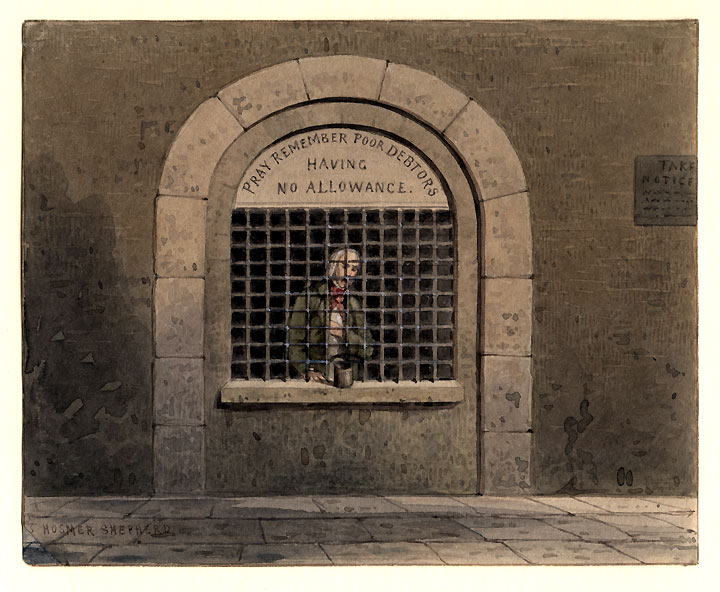Senator Elizabeth Warren has a plan to cancel student loan debt, and good faithful Catholics are up in arms about this. To their mind, this plan is all about letting a bunch of mooching free-loaders get away with reneging on a contract made. Sure, some of us have already been paying off our student loan debt for the past twenty years. Sure, we’ve paid as much as and more than the amount we originally borrowed. Yes, the loan corporations keep front-ending interest so we’re barely scratching at the principal. None of this matters: we are, apparently, morally obligated in justice to keep on paying and paying and paying until we die.
“This,” one person remarked,” is the nature of a loan. The interest will only keep ticking if you make only minimal payment. That is your choice…buckle up and pay it off…or, stretch payments out to improve for cash flow. Many people use credit to immediately imrpvie their lifestyles. Try adding an additional $100 to loan payments each month and watch how fast the principal diminishes.
You get no sympathy from me…I will wager you live much better than a high school graduate ($30k average annual) or somebody who did not complete high school ($24k average annual, do something you enjoy and don’t work nearly as hard….
The American people made an investment in you. You contracted to repay the loan to get what you want. It is your responsibility to repay the loan with interest. It is a disgrace to not pay your bills or attempt to beggar-thy-poor-neighbor. Manage wisely and be a good stewart of public resources. To whom much has been given, much is expected.”
A loan is what we decide to make it
In the first place, it is sheer inanity to talk about a social construct like a loan as though it had some immutable, unfixed nature. The nature of a loan is in fact whatever we as a society to make it, In a good and just society the nature of a loan will not milk wealth over and over and over again from a worker, far after the original quantity has been compensated.
And, believe it or not, many people do not have that extra one hundred lying around to send spinning off into the eternally sucking black hole of the lender’s appetite. And even if we did, is it really right or just that we should be obliged to give the money for free – because that, fundamentally, is what is happening – to rich corporations instead of getting our kid a new bike for their birthday, or going out for a rare date night with one’s partner? How is that good for families?
Do hard work and excellence pay off? Much depends on the bosses.
Furthermore, many people with college and even graduate degrees are making no more than the average high school graduate, because we were lied to about our job prospects. In my case I thought that stellar academic achievements, proof of scholarship, and a couple of advanced degrees would land me a decent tenure track professorial post. Turns out, there are almost no such jobs, in either of my fields. Everything is farmed out to adjuncts, who are notoriously overworked and underpaid.
When I worked as an adjunct instructor at Franciscan University the most I could bring in, per annum, was around $14,000. Oh, I took side jobs. I asked the dean if he would create a special post for me that would enable me to teach more, in both the departments that contracted me, in return for better and more stable wages. But in spite of my extremely high ratings as an instructor, it was to no avail.
In the meantime, my husband, who has a college degree, was bringing in about the same amount, first as a granite worker and later as a woodworker. When my babies were born, he would come home from work, exhausted, and look after them as I dragged myself off to teach. That whole time period is a bit of a blur, to be honest, because it seems it was all work all the time, with little hope of change. Why give us raises, when we were going to keep on working anyway? When we were doing our best out of a sense of honor, just compensation or not?
This is the magic of western capitalism at work: the relativization of human work at the whim of the employer.
Now that my family is better situated, I have not forgotten how hard it was for so many years, and how others are still trapped in situations where hard work and excellence seem to be of no avail. I don’t expect my debts to vanish any time soon, but at least we have our heads above water.
Even if I were debt free, however, I can not imagine looking at others who are working hard to make the most of a dream that turned out to be a lie, and tell them they have to just keep on paying. I can not imagine blaming them for their choices, when it was the older generation that guided us to make those choices. In this economy, the idea that working harder is the secret to success is laughable, a fossil fantasy for the privileged and out of touch.
But wait – what about the Catholic take on this?
Since I’m seeing so many Catholics clutch their rosary-beads over Senator Warren’s terrible and unjust proposal. And the individual who treated me to the above tirade identifies not only as Catholic, but as part of the Catholic Worker movement – so one would expect his views to be in line with Catholic teaching and Catholic social justice, right?
Such an expectation would be disappointed. Because in reality debt forgiveness has always been part of the Catholic tradition, building on the ancient Judaic tradition of the “Jubilee Year,” a year of forgiveness when the land was allowed to rest and all debts were cancelled.
As Pope John Paul II wrote:
The Jubilee year was meant to restore equality among all of the children of Israel, offering new possibilities to families which had lost their property and even their personal freedom. On the other hand, the jubilee year was a reminder to the rich that a time would come when their Israelite slaves would once again become their equals and would be able to reclaim their rights. At the times prescribed by law, a jubilee year had to be proclaimed to assist those in need
(As the Third Millennium Draws Near, 13).
Debt forgiveness is not some new-fangled secular snowflake notion; it is part of our rich scriptural and moral heritage as Christians.
Furthermore, the church has traditionally condemned the practice of usury – that is, of charging excessive interest, to enrich the lender. This practice was condemned by the church fathers and by Aquinas. Dante places the usurers in the Inferno alongside the “sodomites” – but he seems to like the sodomites better, as most of them were cultured men and poets, as opposed to sordid money-grubbers.
While the church has been, of late, woefully silent on the topic of usury, the teaching has not changed. It may have been relaxed or developed somewhat – fortunately, perhaps, given that its traditional condemnation of all charging of interest ended up being linked with anti-semitism – but it has not changed.
In Canon 915 usurers are still listed among those unworthy to be admitted to communion.
Debt forgiveness, far from being some wild innovation of leftist politics, is a hallowed tradition in the church.
And the charging of outrageous interest is traditionally regarded not only as unjust but gravely sinful and contrary to nature.
Catholics who wish to take a stand against Senator Warren’s plan are free to do so, of course, but they should be aware that in so doing they are not only openly proclaiming their willingness to sentence their fellow citizens to a life of fruitless toil; they are also in open dissent from the teachings of the church. They should not be surprised if we opt to shun them.
image credit: https://commons.wikimedia.org/wiki/File:A_debtor_in_Fleet_Street_Prison_THS.jpg













